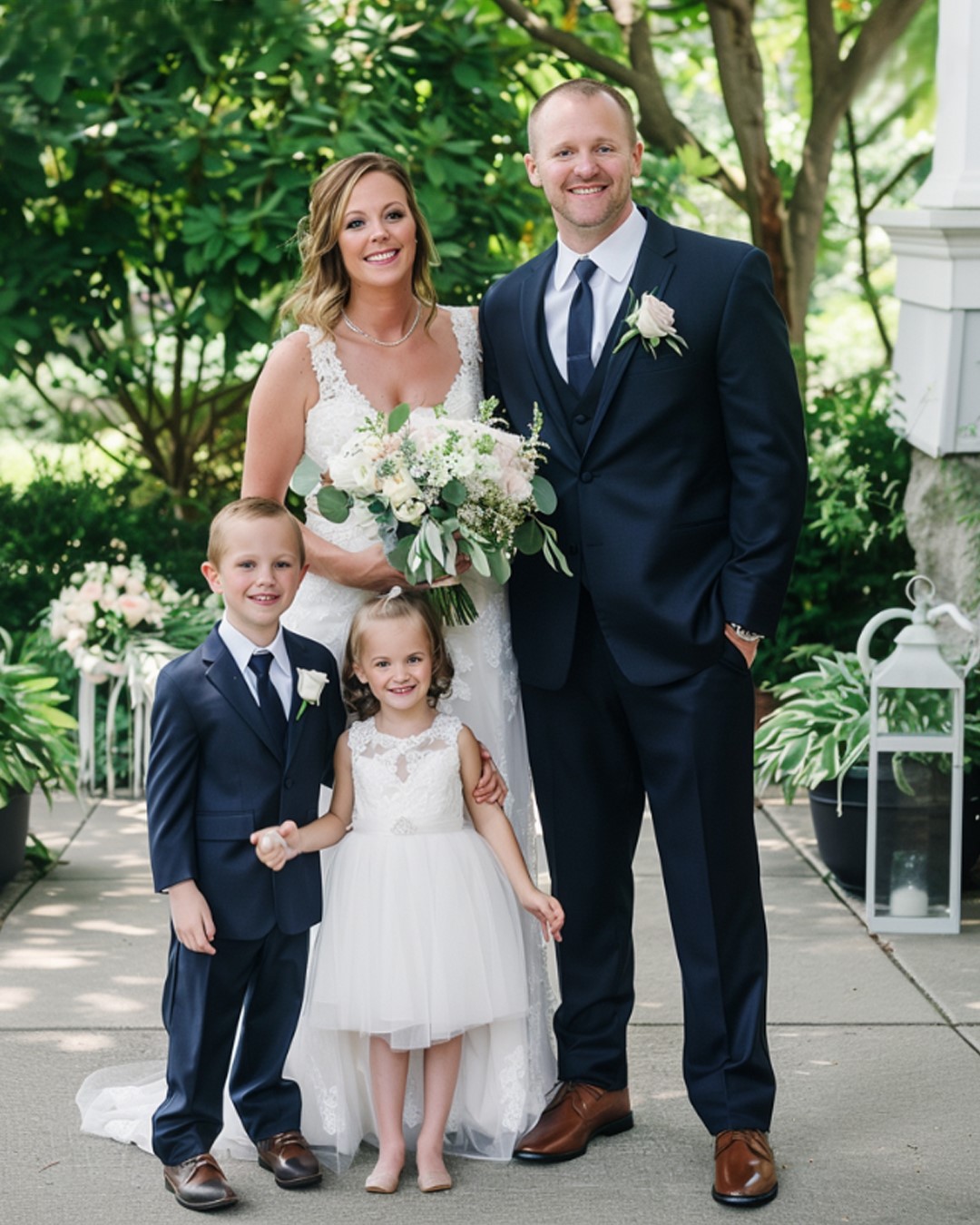I married a man after a whirlwind romance, believing we’d find happiness together. Some people might say it was a red flag when he insisted I meet his children just days into our relationship, but at the time, I didn’t see it. By the time I realized I was in too deep, it was too late, and I had to prioritize my well-being.
At 22, I met Will, a 29-year-old newly widowed man with two young children—Tamara, a daughter, and Nick, a son. Our relationship developed quickly, and Will introduced me to his children very early on. I thought it was odd to meet them so soon, but he reassured me by saying I was “the one” for him and his kids.
Looking back, I might have been swept up in the excitement, as we married a year later. On our wedding day, we exchanged not only vows with each other but also promises to his children—something Will had insisted upon. It was a heartfelt moment, his idea, but not long after the ceremony, the cracks in our fairy tale began to show.
Despite working full-time, I found myself burdened with all the childcare, cooking, and household duties. Will, exhausted from work, used that as an excuse to avoid responsibilities, saying things like, “You’re so good with them, it just makes sense for you to handle it.” His free time became consumed by video games or nights out with friends, while I juggled my job and managed everything at home. “I’m the one bringing in the money. I deserve to relax,” he’d argue when I expressed my exhaustion.
As time passed, Will’s attitude grew more dismissive, and he became disrespectful. His behavior influenced his children, who started treating me more like a servant than a stepmother. “Why do you always make us do things? Dad lets us have fun,” they would complain. By the end of the first year of our marriage, I knew our union was a mistake, but I felt trapped by my promises to them.
Years later, the strain became unbearable, and I filed for divorce. One afternoon, I packed my things while the house was empty, and left a note for Will and the kids. It read:
“Dear Will and kids,
I’ve done my best to be a good wife and mother to you, but I can’t keep living in a situation where I feel undervalued and used. I’m sorry I couldn’t honor the promises I made.
Love, Madison”
The divorce was bitter. Will, once the man I had fallen in love with, had become an angry stranger. I walked away with little more than what I brought into the marriage. Despite feeling relieved to escape, I was heartbroken over leaving the children behind. My life improved greatly after the divorce, but little did I know, my connection with Will’s children wasn’t over.
Fast forward 15 years. I was in my late 30s when I received an unexpected call from Tamara, now 25. My heart raced, bracing for anger or accusations, but instead, Tamara’s words left me stunned. “Madison, you left the most beautiful memories in my and Nick’s lives,” she said, voice filled with emotion. “You were the mother figure we remember and always cherished the time we spent with you.”
Tamara explained how, as they grew older, they began to see the truth about their father’s behavior. “We missed you every day. We always hoped you were okay,” she confessed.
It turns out that Will had never remarried, and his relationships with younger women never lasted. Tamara and I arranged to meet, and when we saw each other again, emotions ran high. Both she and Nick thanked me for the role I had played in their lives. “You taught us what kindness really is,” Nick said, his voice thick with gratitude.
Seeing them as adults filled me with pride and regret. Had I known how much my presence had impacted their lives, would I have made the same decision to leave? Despite my doubts, I was proud of the adults they had become, and I was grateful to have had a positive influence on them.
Looking back, I still wonder if leaving Will was the right choice, but I know it was the only way to preserve my own well-being. And perhaps, stepping away was the best way to leave a lasting, positive impact on Tamara and Nick. Their love and gratitude are a reminder that sometimes, the hardest decisions lead to the most profound outcomes.
What would you have done in my shoes? Was walking away the right choice, or should I have stayed to honor the promises I made to his children?
